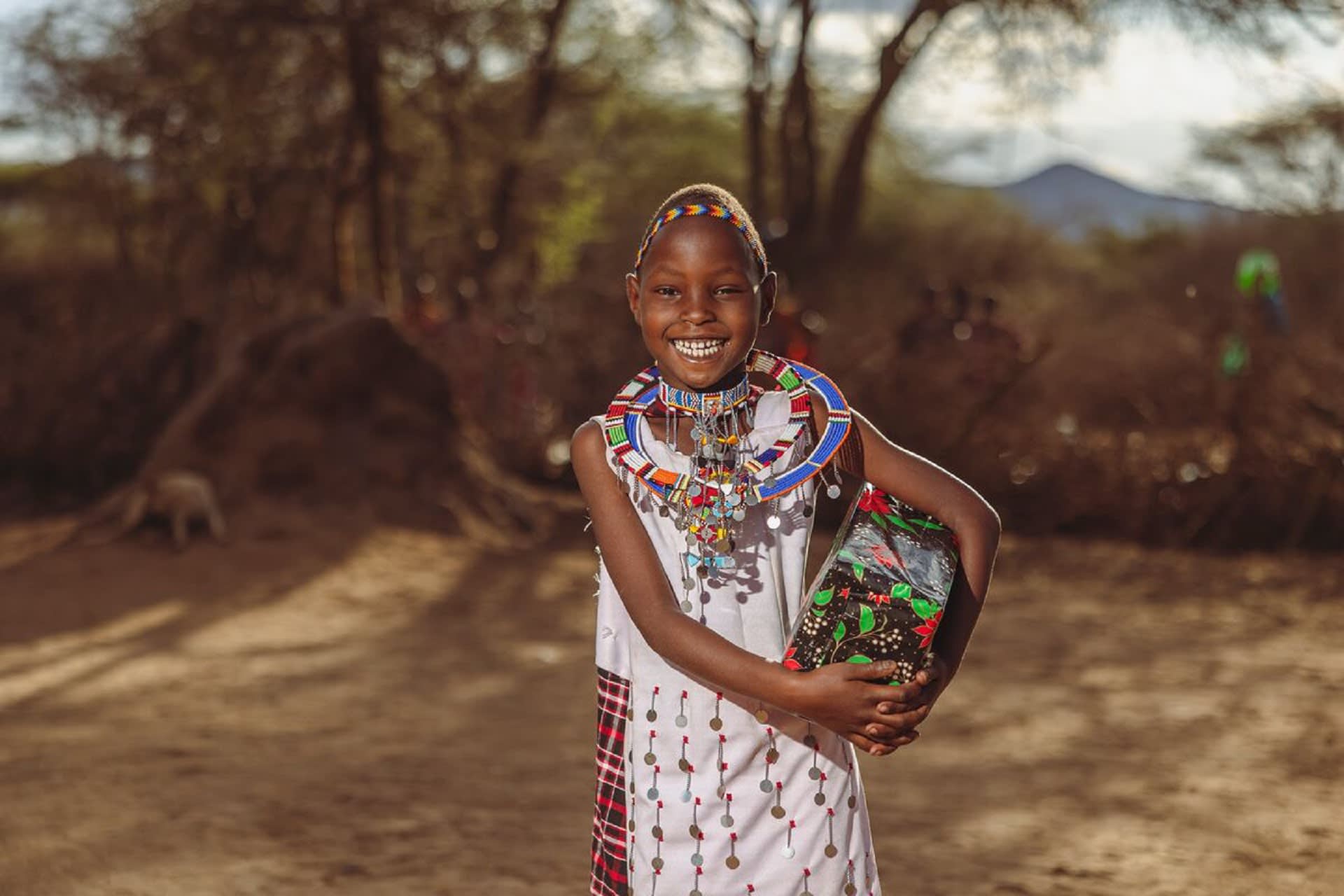Amid the hardships of this year, the Christmas season comes to remind us that darkness never wins.
As we unwrap every good gift in Jesus, we ignite anew the light that ushers in hope and brings us good tidings of great joy (Luke 2:10). And we are reminded that every need, every loss, every pain, points us to Jesus, our only hope. So, we light the candles, we hang the lights, we share our meals and give good gifts, because only light can drive out darkness.
This is what the families in the village of Enkutoto have come to know, that there is power and love in raising the banner of the Lord. So, they gathered with their local church to celebrate Christmas with bursting joy and the vibrance of their community and culture.
We invite you to experience a very Maasai Christmas, as families from the Enkutoto village gather to celebrate this season.
Christmas joy
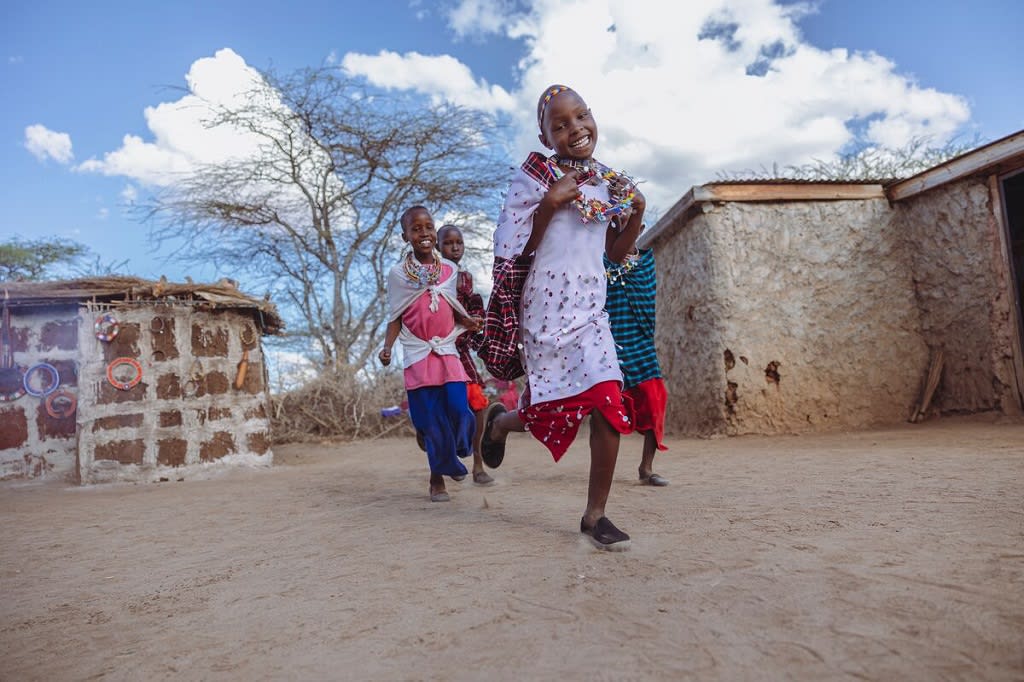
Seven-year-old Pesi dashes away from her friends Sompet, Haimesoi and Marania as they play catch. Sounds of laughter fill the air as they play and run around the home.
The compound is full of people and conversations get louder as more people gather. Everyone is happy to see one another. Under the trees are older men and women sitting separately and trading stories as they watch the children play.
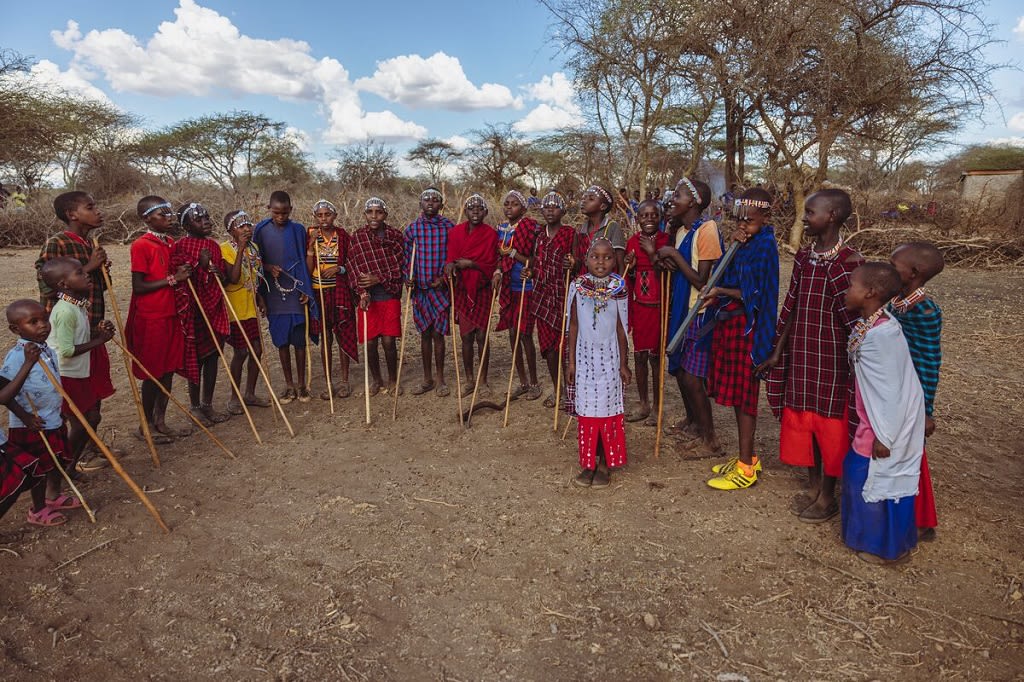
Such is the celebration of Christmas in the village of Enkutoto, off the Kajiado Emali road. A village surrounded by hills, with Mount Shompole in the distant east on the border with Tanzania.
It’s an arid area surrounded by acacia trees and bushes, a favourite for the goats which all families own. Enkutoto is home to the Maasai people, who live mainly along Kenya’s Rift Valley and across the Tanzanian border to the south. Maasai have a strong culture, one that is still preserved today.
Celebration time
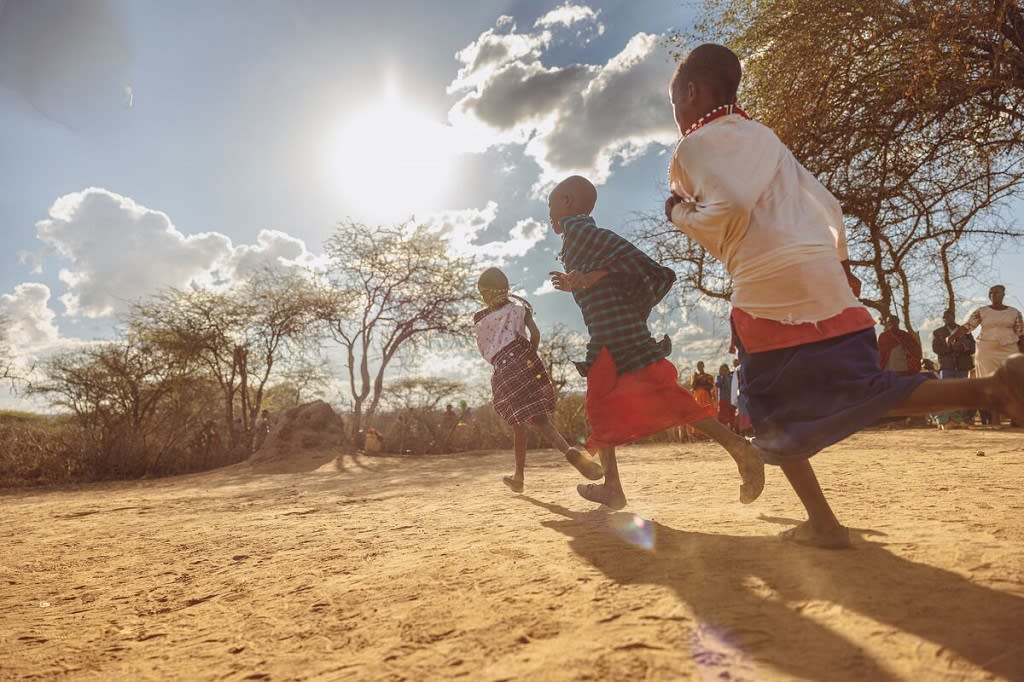
Activities begin at the break of the day. The smell of firewood fills the air as women cook while the goat or sheep slaughtered the day before is being prepared by the men.
Older children are sent to fetch water and more firewood, while the younger ones like Pesi play or do the chores delegated by their mothers. When the meat is roasted and ready to eat, different parts of the animal are allocated to the men, women and children. Chapati and stew make up a big part of the meal that is prepared for the celebration.
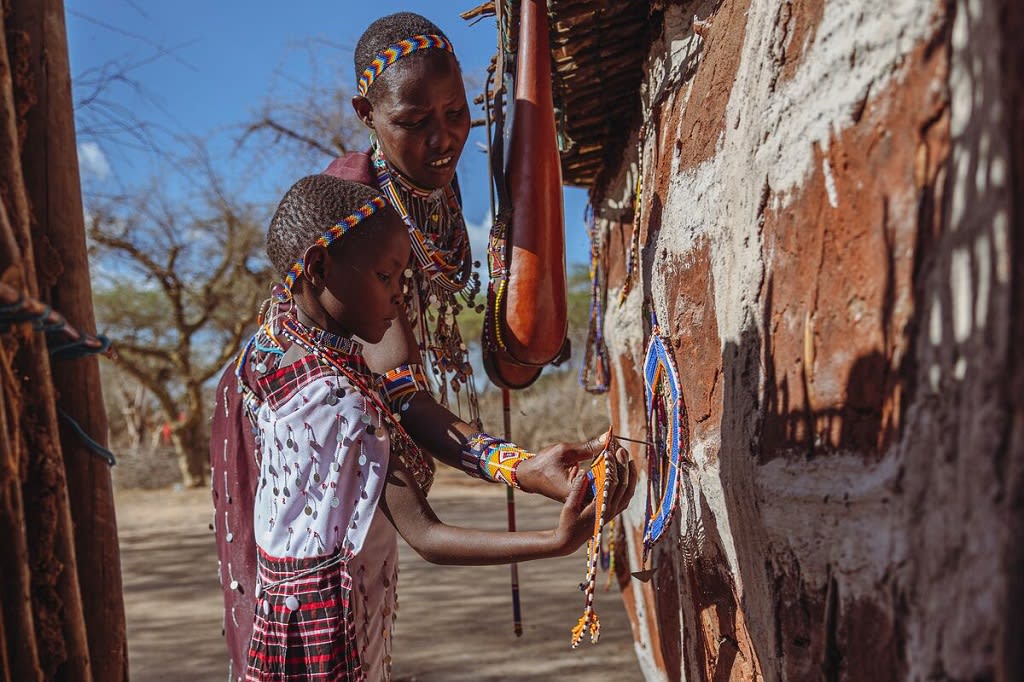
As part of the preparations, the home is decorated using beaded artwork that most Maasai women make at home. The women and girls put on robes and gowns with intricate beadwork. The clothes and beads have specific colours, all with a special meaning.
Red, which is the most dominant colour, signifies blood, bravery and unity. White represents health, peace and purity. Blue is the colour of the sky and represents energy, and green is the colour of grass, which signifies the land and production.
Black represents the people and the struggle they must endure. Yellow symbolizes the sun, fertility and growth, and orange represents warmth, generosity and friendship.
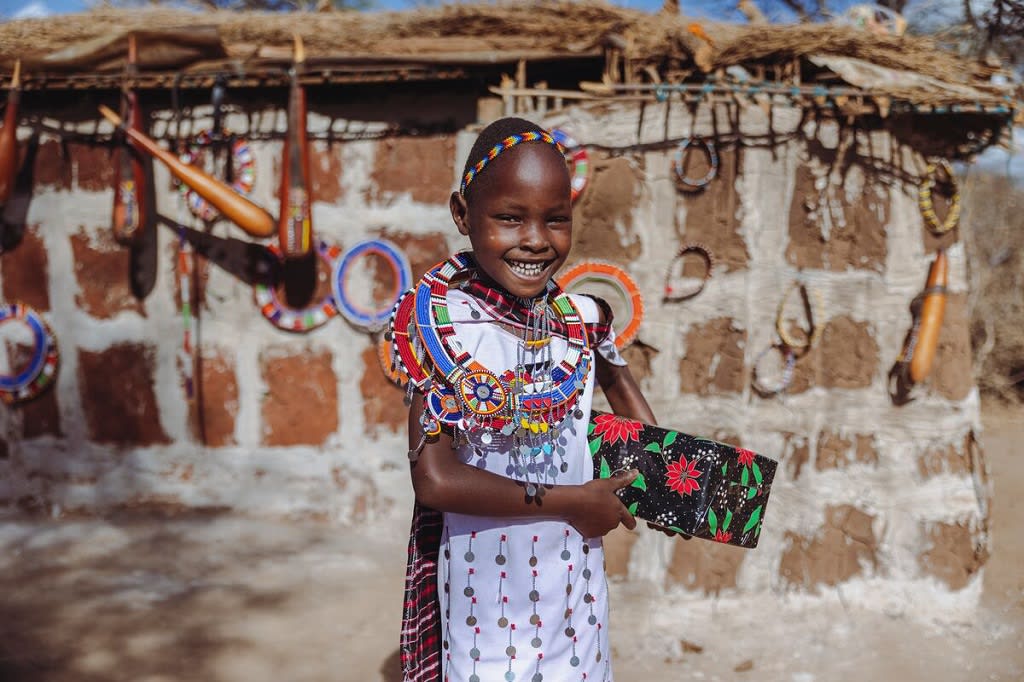
Seven-year-old Pesi is part of the Child Sponsorship Program in Mashururu. Every year since she can remember, her family has celebrated Christmas. “I love Christmas because I get to see many friends and family,” she says. “What I love most is when everyone comes together to sing.”
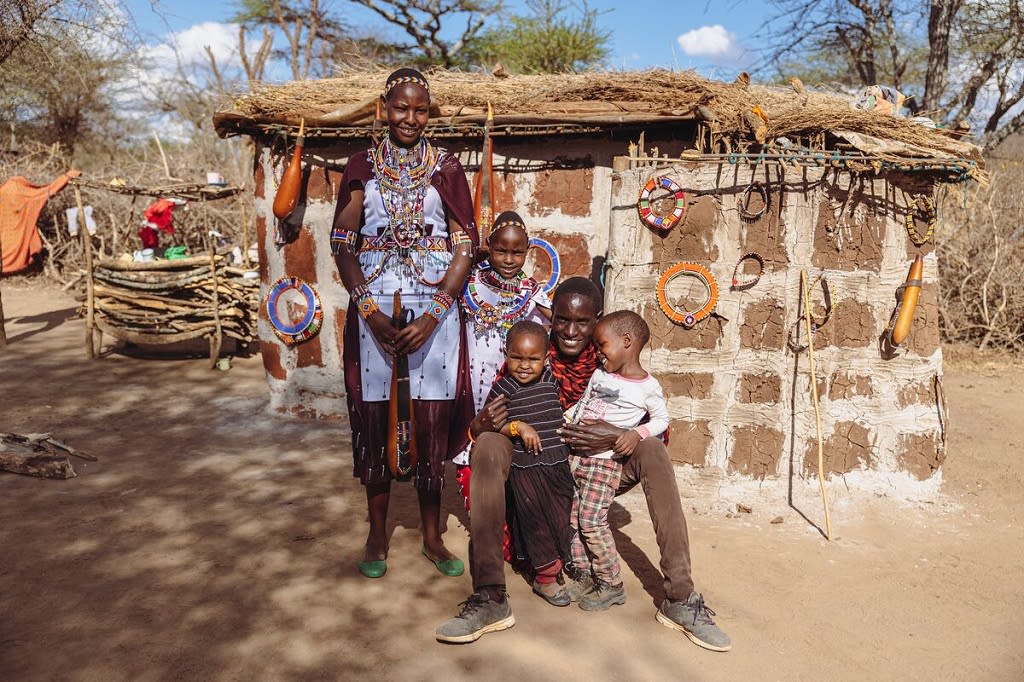
Pesi’s father is the firstborn in his family. So, he hosts family and friends in his homestead.
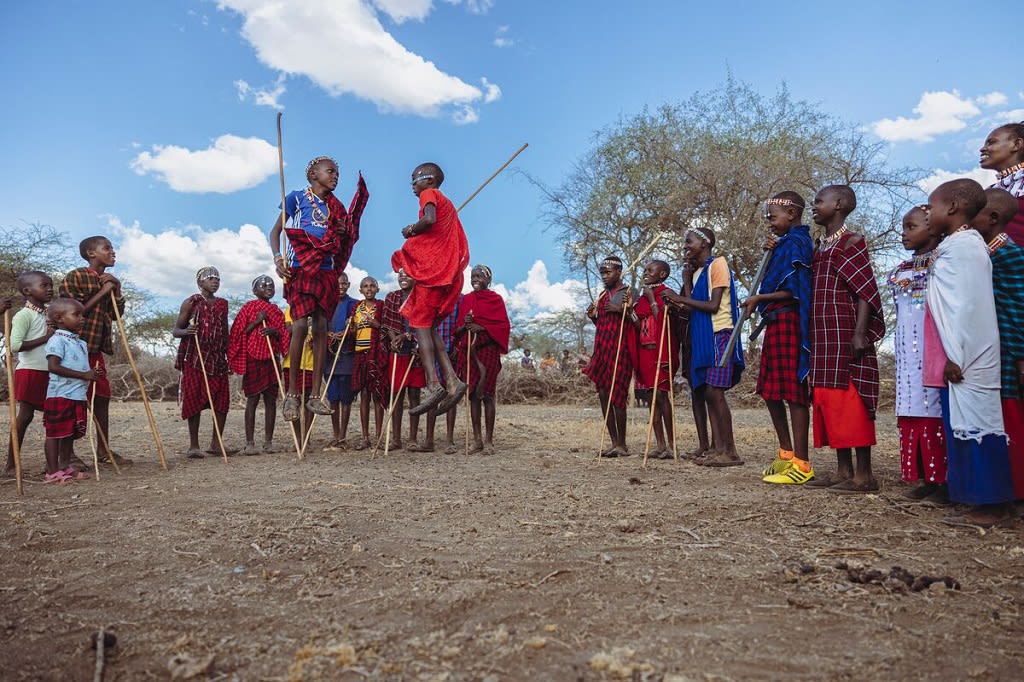
The church ensures all the Maasai children understand what Christmas is really about. “Many people around here celebrate Christmas but in the wrong way, making it lose the true meaning and diluting the message of love,” says Becky, the social worker at Mashuru.
“We always make it a special day and try to bring everyone together so that it is remarkable to our children. All people involved in the children’s lives gather at the church to celebrate and have a special meal together.”
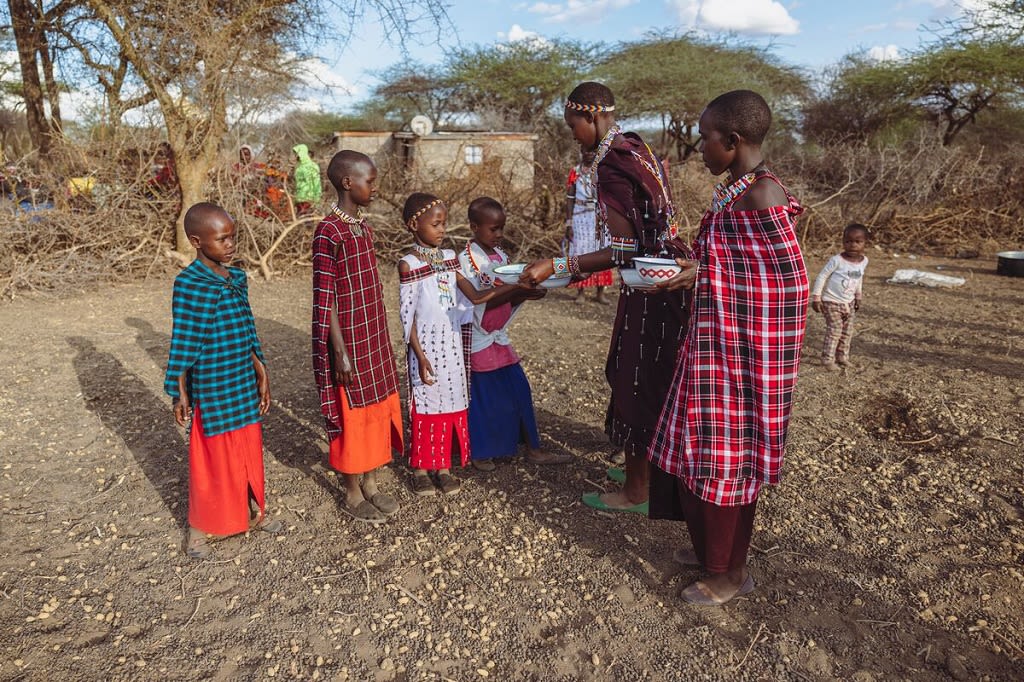
Pesi is wearing red and white traditional clothing. She and her friends are receiving food from Pesi’s mother.
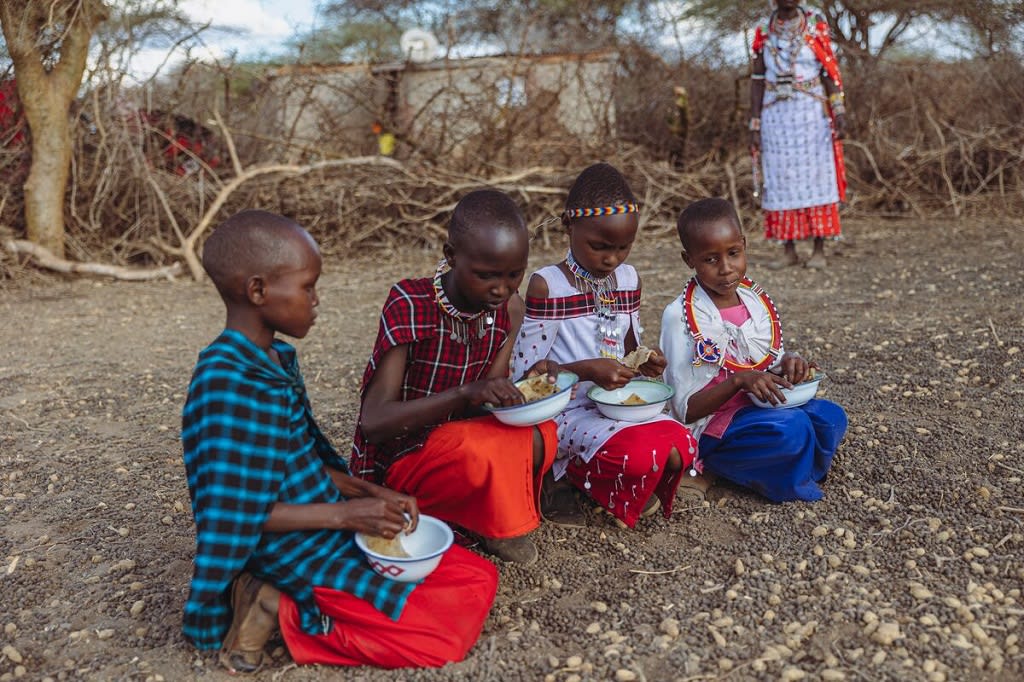
Pesi and her friends have just been served some stew with chapati. They eat while sitting on the ground. The girls are eating fast so they don’t miss out on the singing and dancing. “I love that as Maasai we get to sing together during celebrations while wearing our traditional clothes and ornaments,” says Pesi.
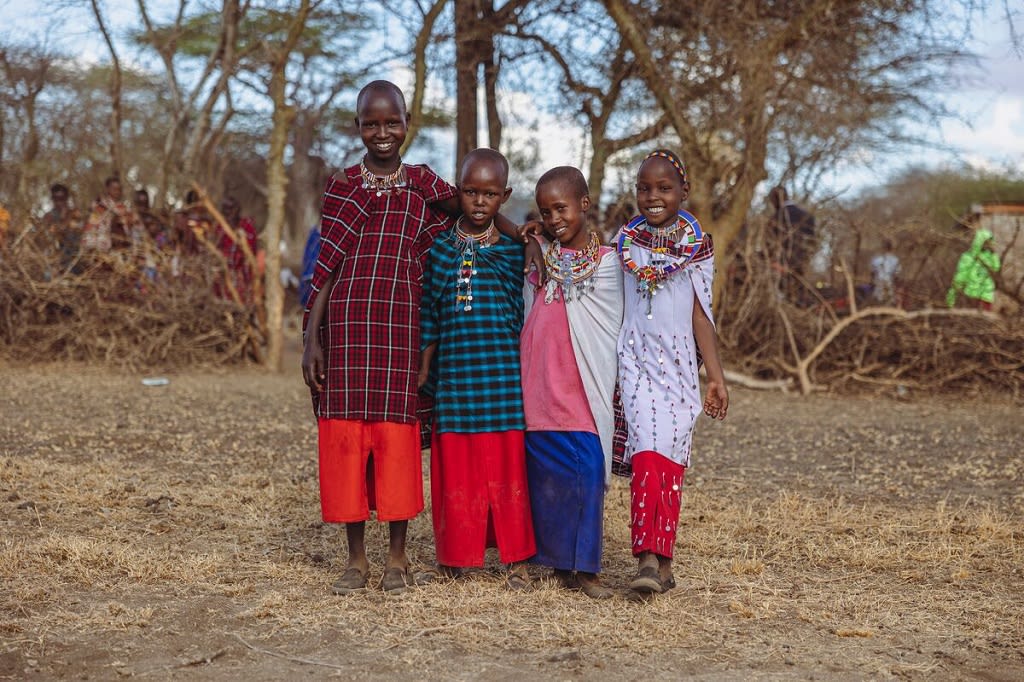
Pesi and her friends Sompet, Haimesoi and Marania.
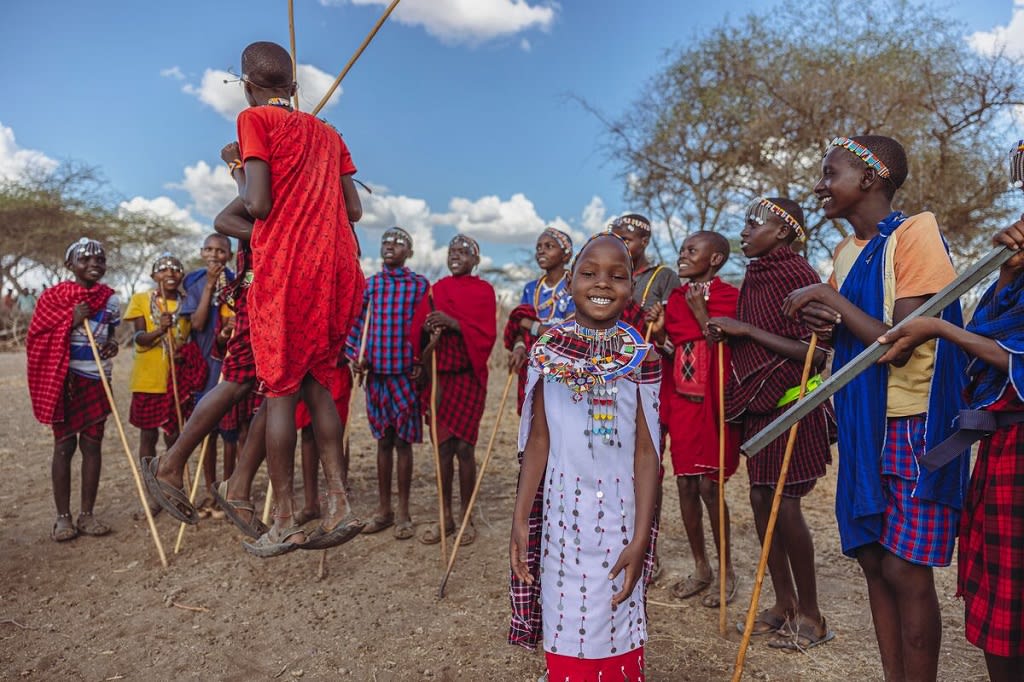
Boys sing and chant in Maasai, praising God. They also blowhorns and pipes as they go round in a circle.
Watch: The children of Maasai chant praises to God
With joy and gladness, they danced
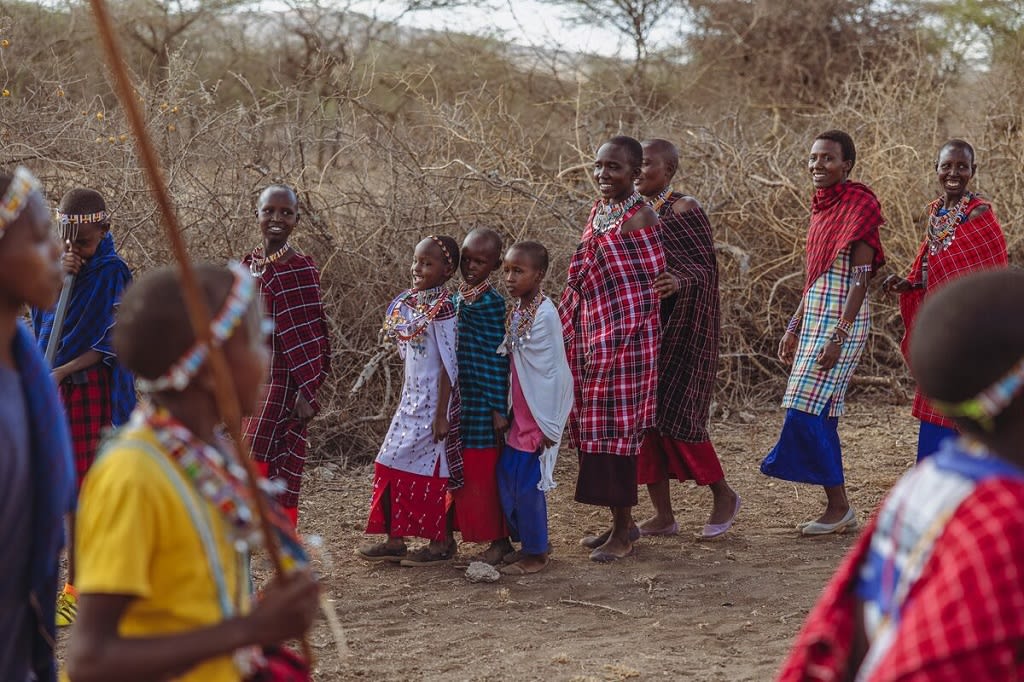
Pesi and her friends Sompet, Haimesoi and Maranai follow the women and join in the singing.
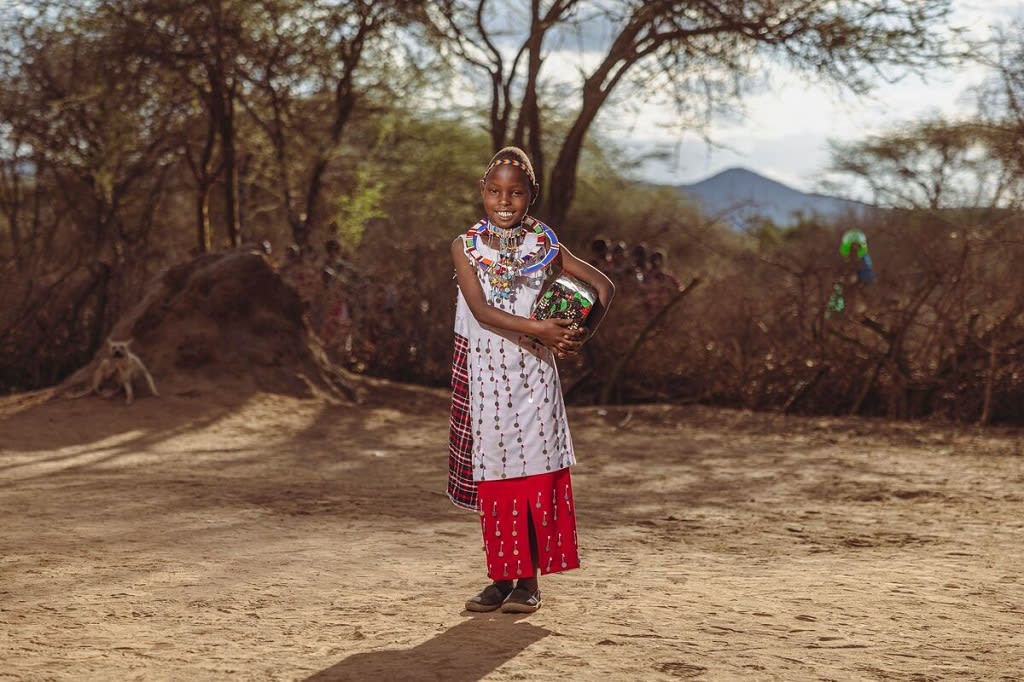
In addition to throwing a party, the church ensures children receive a Christmas gift. Most of the gifts the children receive include shoes, clothing and sometimes candy and pastries as extras, which the children love so much. Becky, the social worker at Mashuru, lives in the same community, and she knows the difference the gifts make in the lives of the children.
“It is difficult for the children to receive gifts in the village, so when such is done it is a true expression of God’s love,” she says. According to Becky, the gifts help children to feel a deeper connection with their sponsor. “The gift makes me feel special. I started receiving Christmas gifts when I joined Compassion,” says Pesi.
A day to be remembered
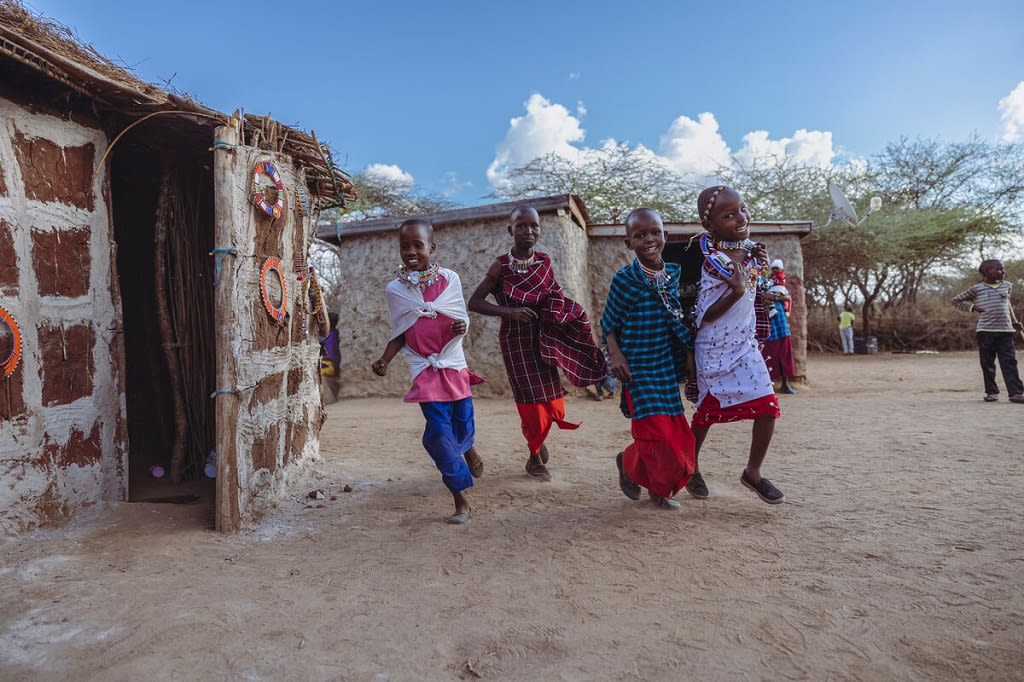
As darkness begins to set in, guests trickle out of the homestead one by one, filled with joy and laughter as they bid each other goodbye. The moment is bittersweet for it has been a good day. Babies yawn in their mother arms, younger children hold onto their mother’s shukas (traditional fabric).
The men start a fire to continue sitting under the starry sky. In the distance, bleating goats and mooing cows can be heard. Pesi joins her family by the fire as they listen to her grandfather share stories in her language.
There are many things to be thankful for and memories to recount. She will share the experience in her next letter to her sponsor. “I thank my sponsor for always giving me a great Christmas,” says Pesi.

